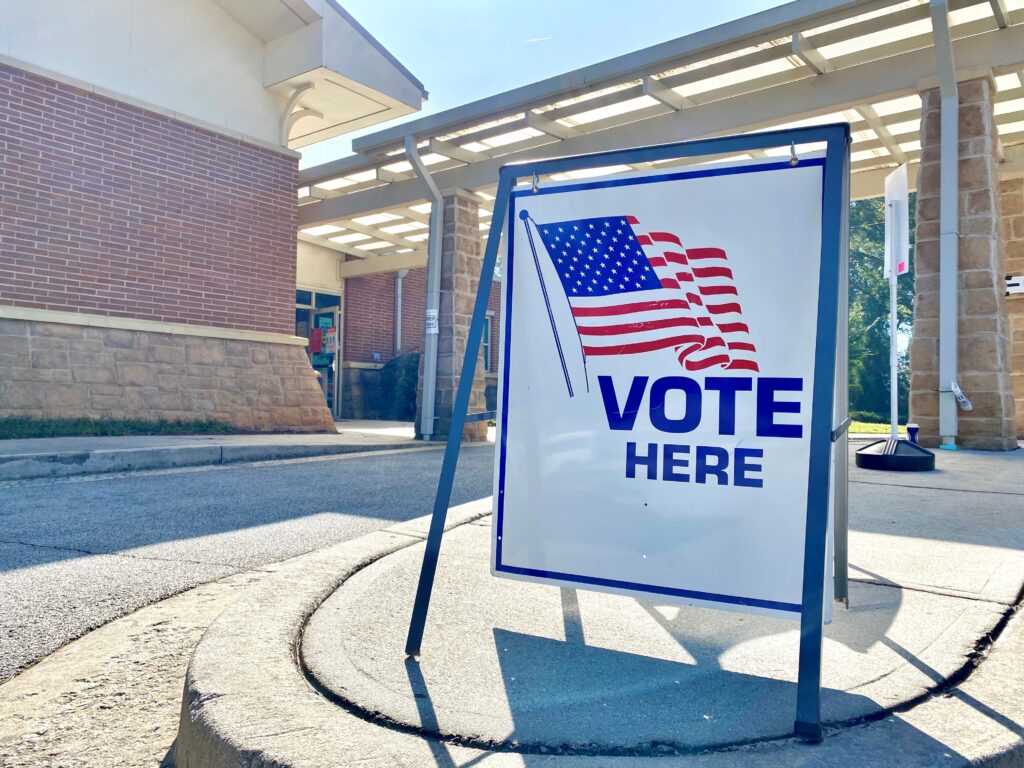
Nearly 200,000 Georgia voters may have been improperly purged from the state’s voter rolls and should be restored by Secretary of State Brad Raffensperger’s office before the Jan. 5 runoff elections, a lawsuit filed in federal court alleges.
The suit filed by four voting-rights groups comes as Raffensperger’s office fends off separate litigation from President Donald Trump’s allies seeking to overturn Georgia’s presidential election, after certified results show President-elect Joe Biden won by 11,779 votes.
Judge Steve Jones of the U.S. District Court for the Northern District of Georgia heard arguments Thursday from the suing groups and Raffensperger’s office, which has argued the purge claims lack proof and that the lawsuit was filed too late.
The purge suit argues more than 68,000 voters had their registrations canceled in 2019 despite still residing in Georgia, while another roughly 130,000 voters were removed from the rolls as part of a faulty process for verifying address changes.
It asks the court to restore registrations for “wrongfully removed” voters in time to cast ballots in Georgia’s two hotly anticipated U.S. Senate runoff elections on Jan. 5. If restored, those potential voters could have a huge impact on turnout for the runoffs as Republicans push to keep control of the Senate.
“It could have a substantial effect on the upcoming runoff,” said Gerald Griggs, an Atlanta attorney representing the suing groups. “That’s why it’s important that people understand that voting rights are at stake here in Georgia.”
In particular, the lawsuit faults Raffensperger’s office for not hiring a third-party vendor licensed with the U.S. Postal Service to verify address changes via a national database, a charge that election officials say is baseless since they argue roll-cleaning vendors do not need to be licensed under federal law.
Raffensperger’s office has repeatedly dismissed claims of improper roll purges, noting state law requires officials to remove voters from registration lists if they have not voted in general elections or responded to warning notices for several years.
At a news conference Thursday, Georgia’s election system manager, Gabriel Sterling, said state officials gave the roughly 198,000 voters at risk of being canceled ample notice to restore their registrations – even going so far as to release a list of those voters publicly.
“They’re basically misunderstanding how this process works,” Sterling said of the suing groups. “That’s the underlying part of it.”
The four suing groups are the Atlanta-based Black Voters Matter Fund, the Washington, D.C.-based Transformative Justice Coalition, the Chicago-based Rainbow PUSH Coalition and the Texas-based Southwest Voter Education Project.
Their lawsuit follows previous litigation brought by former Democratic gubernatorial candidate Stacey Abrams’ group Fair Fight Action last December, which prompted Raffensperger’s office to restore around 22,000 Georgia voters back to inactive status rather than remove them from the rolls.
The current purge lawsuit’s claims stem from findings by a group run by investigative journalist Greg Palast, who previously found registration cancellations for hundreds of thousands of Georgia voters by Gov. Brian Kemp while he was secretary of state ahead of his win in the 2018 gubernatorial election.
A top Raffensperger deputy also recently called Palast a “shill for Stacey Abrams,” according to the lawsuit. Abrams lost the governor’s race to Kemp in 2018 and has since played a leading role in the push to boost voter registration and Democratic turnout in Georgia.
Amid fierce competition in the Jan. 5 runoffs, the latest purge lawsuit marks a remarkable alliance between Raffensperger’s office and the Georgia Republican Party, which intervened in the case despite excoriating the secretary of state over his handling of fraud claims stemming from the Nov. 3 election.
GOP Chairman David Shafer, who is a former state lawmaker, has joined the Trump campaign in a lawsuit currently pending in Fulton County Superior Court to overturn the presidential election results and order a redo of the election. Trump has called Raffensperger an “enemy of the people.”
Other Trump-backed suits aim for the Republican-controlled General Assembly to pick Georgia’s 16 Electoral College members, which would likely hand those votes to Trump. Kemp, the state’s top Republican, has repeatedly said the legislature does not have authority to do so under Georgia law.
As of Friday afternoon, no court in Georgia has found any fraud claims from the Nov. 3 election to be valid. Several cases have been dismissed, with appeals still pending.
Raffensperger and Sterling – who are both Republicans – have repeatedly said there has been no evidence of widespread fraud in the Nov. 3 elections.
The Jan. 5 runoff elections pit Republican U.S. Sens. David Perdue and Kelly Loeffler against Democrats Jon Ossoff and Rev. Raphael Warnock. Wins by both Ossoff and Warnock would give Democrats control of the White House and both houses of Congress for at least the next two years.
Early voting for the runoffs starts on Monday, Dec. 14.
